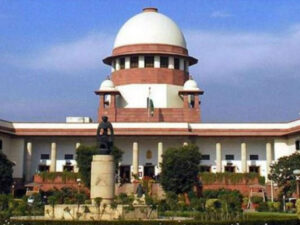
US-based transformation does not meet IT standards
NEW DELHI: Twitter local grievance officer Dharmendra Chatur has left the company within weeks of being charged. This development comes at a time when the micro-blogging platform is facing severe heat regulation in India with new IT rules and other run-ins with law enforcement frameworks. The company, which has been found to be in breach of the new rules, has now acquired its global legal policy manager Jeremy Kessel, although his appointment does not appear to be in line with the guidelines, which mandate that the grievance redressal officer be based in India. Kessel, who has been on Twitter for several years, has been evicted from San Francisco, despite being given an email address directly to India: [email protected]
Chatur is not a direct employee of Twitter US
Twitter declined to comment on specific questions. “We have no comment,” a Twitter India spokesman said. India’s regulatory relationship in India has been under intense pressure due to the company’s refusal to comply with the new IT rules, announced on February 25, instructing the company to appoint three specific officials – grievance redress, submissions and compliance – on May 25.
Delays in the appointment of officials also saw the company lose the protection of the ‘safe port’ required under the IT Act, making it liable for criminal and punitive action for any illegal content placed in its place. The company’s problems are also exacerbated by the fact that its Indian MD – Manis Maheshwari – has been summoned by Gaziabad police on a criminal charge (although he was acquitted in the Karnataka high court).
The company has so far failed to legally hire, despite being given a grace period by the government. Although it is not clear whether he has been appointed to a leadership position by doctors, even Chatur’s appointment was subject to legal uncertainty as he was not a direct employee of Twitter US, but was a nominee at a law firm representing the company in the Delhi High Court.
According to the new rules, key executives are required to be on pay at world headquarters, and may be employed by Indian companies. This has been determined as content management, processing and evaluation is the backbone of the U.S. headquarters of communications agencies, while its subsidiaries – such as India – are primarily responsible for advertising, marketing and advertising activities.







